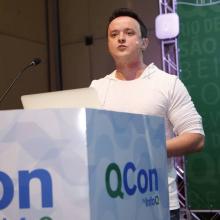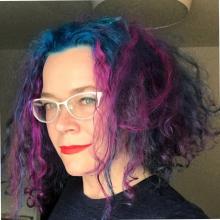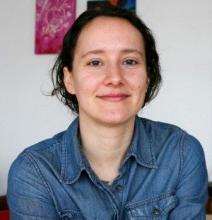Abstract
So, you want to be a Staff-Plus Engineer at your organization. Are you one of a hundred engineers vying for that big new shiny project to get you there?
Let me tell you a little secret: Listen to what your peers and managers are complaining about. Are they drowned in production issues on an old unreliable system that no one wants to touch? Are they stuck waiting for approvals from design committees? Are they struggling to make large-scale interactive applications work across data centers? Or is the business losing money on over-provisioned hardware in the cloud?
These tedious unattractive problems could be your biggest opportunities to solve hard technical issues while having a massive impact on your entire organization.
In this talk, we will use some real-world examples to unpack how to recognize such problems, broaden your scope, and embrace the soft skills needed to tackle them at scale to land a Staff-Plus Engineer role.
Interview:
What is the focus of your work these days?
I’m the technical lead for various consumer-facing platforms at LinkedIn. This includes Messaging, Search and Profile. I also work on LinkedIn's real-time delivery infrastructure. I actually did a QCon session on that in 2020 in London. One of the projects I worked on this year was to guarantee at least one semantics throughout the entire LinkedIn instant messaging delivery pipeline to make it extremely reliable. This was a very interesting technical challenge and I may actually talk about it in an upcoming QCon event.
What is the motivation behind your talk?
A lot of engineers ask me how they can find impactful projects in their organization to grow into a Staff+ engineer role. Sometimes they feel that their manager is unable to find the right opportunities for them, or they feel constrained by the scope of the team they're currently working on. Sometimes they actually feel that the best projects are already taken up by others. I want to address this problem head-on and just share some secrets for finding and solving meaningful problems in an engineering organization.
Who would you describe as the persona and what would their level be for this session?
Although the session is targeted at senior-level engineers, I think that what I'm going to share applies to engineers at any stage of their careers. Recognizing patterns and problems, generalizing them, and building solutions for the broader organization are all invaluable skills to grow your career at any stage. Although I will be using real-world technical examples for this, my advice even applies to job functions beyond engineering.
Is there anything specific you would like attendees to walk away with after seeing your session?
I would like to have them walk away feeling confident about a few things. First, you do not need to wait for someone to assign you a big project to grow your career. I think meaningful, impactful problems are waiting to be solved all around you as long as you're willing to keep a keen eye out for them. Second, engineers complain about systems and processes all the time, and these are the tedious, unattractive problems that could be your biggest opportunities to solve hard technical issues with massive impact on your organization. Third, beyond your technical skills, you must embrace the soft skills needed to solve such problems at scale, even if they make you uncomfortable. So understanding the business, aligning with non-engineering leaders, presenting to executives, written communication, and public speaking: these are all examples of skills that all engineers must practice all the time.
Speaker

Akhilesh Gupta
Principal Software Engineer @LinkedIn, previously Lead Engineer @Uber
Akhilesh is the technical lead for LinkedIn's real-time delivery infrastructure and consumer facing platforms like Messaging, Search & Profile. He has been working on the revamp of LinkedIn’s offerings to ultra-reliable, real-time experiences. Before this, he was leading engineering for Ride Experience at Uber Technologies in San Francisco. He holds a Master's degree in CS from Stanford University.





